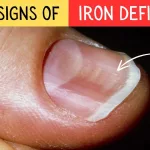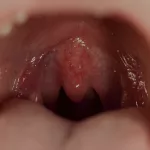Hey there! If you’ve ever opened a drawer, spotted a bottle of pills with a date that’s long past, and wondered, “Is it still okay?” you’re not alone. The short answer is: most expired meds lose a bit of their punch, and a few can actually become risky. Below you’ll get the whole picture – the science, the safety tips, and even some real‑life stories – so you can decide with confidence whether to toss, keep, or use that old medication.
Quick Answer
In a nutshell, taking expired meds is usually not deadly, but it can mean you’re not getting the treatment you need, and certain drugs (like insulin, epinephrine, nitroglycerin, and some antibiotics) can become unsafe. When in doubt, don’t take it and dispose of it properly.
Expiration Dates Explained
What Does the “Expiration Date” Mean?
The FDA defines the expiration date as the last day a manufacturer guarantees a medication’s full potency, safety, and quality when stored under recommended conditions. It’s not a magical “stop‑working‑tomorrow” switch; it’s a conservative estimate based on stability testing.
How Are Dates Set?
Pharma companies run months‑long stability studies, usually at 25 °C and 60 % relative humidity. The data produce a “shelf life” that can range from 12 to 60 months. A safety margin is built in so the drug remains effective for the entire labeled period. The FDA’s Shelf‑Life Extension Program even proved that many drugs stay stable far beyond the printed date when kept in sealed containers.
Real‑World vs. Lab Conditions
In the lab, bottles sit in climate‑controlled chambers. In your bathroom cabinet? Heat, humidity, and light can speed up degradation. Keep meds in a cool, dry place—think a high shelf in a bedroom, not the shower shelf.
Effects of Expiration
Loss of Potency (The Most Common Issue)
Most solid forms—tablets and capsules—gradually lose active ingredient strength. An ibuprofen tablet that’s two years past its date might still relieve a headache, but the relief could be half as strong. Studies show many drugs remain within 90 % of their original potency for 2–3 years after the expiration date when stored properly (Healthline).
Chemical Breakdown → Toxicity (Rare but Real)
Only a handful of medications become harmful once they age. Classic examples:
- Tetracycline – degrades into toxic compounds that can cause kidney damage.
- Insulin – breaks down, losing blood‑sugar‑lowering power and potentially leading to dangerous ketoacidosis.
- Epinephrine (EpiPen) – oxidizes, making life‑saving shots less effective during anaphylaxis.
- Nitroglycerin – becomes unstable; a “no‑pain” chest‑pain tablet could leave you unprotected in an emergency.
Microbial Contamination
Liquids, suspensions, eye drops, and syrups are especially vulnerable. Once the preservative system degrades, bacteria or fungi can proliferate, turning a harmless cough syrup into a source of infection. The Cleveland Clinic warns that expired liquid antibiotics or pediatric suspensions are a “perfect breeding ground” for harmful microbes.
Spotting a Compromised Product
Look for cloudiness, discoloration, foul odor, bulging caps, or broken seals. If anything seems off, toss it.
High‑Risk Medications
| Medication | Risk When Expired | Why It Matters |
|---|---|---|
| Insulin | Loss of glucose‑lowering effect → ketoacidosis | Protein denaturation reduces potency quickly. |
| Epinephrine (EpiPen) | May not deliver full dose → anaphylaxis danger | Epinephrine oxidizes over time. |
| Nitroglycerin | Reduced vasodilation → heart‑attack risk | Unstable nitrate degrades into inert compounds. |
| Liquid antibiotics (e.g., amoxicillin suspension) | Bacterial growth → infection worsens | Moist environment encourages microbes. |
| Eye drops & otic solutions | Contamination → eye/ear infection | Preservatives break down after expiry. |
| Tetracycline | Toxic metabolites (nephrotoxicity) | Known degradation pathway to harmful compounds. |
Real‑World Stories
Expired Insulin Caused a Rash
A 2023 BMJ case report described a patient who developed an acute erythrodermic rash after using insulin glargine that was three months past its date. While a direct causal link isn’t proven, the incident highlights why life‑saving drugs deserve extra caution.
Grandparent’s Liquid Cough Syrup Mishap
One family shared that their 4‑year‑old took an expired pediatric cough syrup, later developing a low‑grade fever. The doctor attributed it to bacterial contamination—a risk that’s well‑documented for liquid suspensions.
Everyday Pill “Just Works” (But Not As Well)
My friend Jake once reached for an expired ibuprofen during a migraine. He said the pain eased, but it took longer than usual. That’s the classic “still works, but weaker” scenario.
Decision Guide
Step 1: Is It a Critical, Life‑Saving Drug?
If the medication is insulin, epinephrine, nitroglycerin, or any other emergency drug, don’t use it after the date. Grab a fresh prescription or an alternative right away.
Step 2: Is It a Solid Oral Form Stored Properly?
Tablets and capsules that have been kept in a cool, dry place may retain enough potency for short‑term use. Still, the safest move is to check with your pharmacist. They can sometimes test potency or advise a replacement.
Step 3: Is It a Liquid, Suspension, or Gel‑Capsule?
These forms are far more prone to bacterial growth and chemical breakdown. The rule of thumb: discard them once they’re past the date.
Quick Flowchart (Visual Idea)
Imagine a simple decision tree: Critical drug? → No → Solid tablet? → Yes → Stored correctly? → Yes → “May be okay for short‑term” else “Dispose.” Liquid? → “Dispose.”
Disposal Options
Take‑Back Programs
The DEA and FDA strongly recommend using official drug take‑back locations. You can locate a nearby drop‑off site via the FDA’s drug‑take‑back locator. These programs destroy meds safely and keep them out of the hands of children, pets, or the environment.
Mail‑Back Envelopes
Many pharmacies provide prepaid mail‑back kits. Slip your meds in, seal, and drop them in a mailbox—simple and secure.
Household Trash (When No Other Option)
If a take‑back site isn’t convenient, crush tablets, mix them with something unappealing (coffee grounds, cat litter), place the mixture in a sealed bag, and toss it in the trash. Do NOT flush medications unless the FDA specifically lists them on the “flush list” (mostly certain opioids).
Special Cases
Insulin pens, auto‑injectors, and inhalers often have separate disposal instructions—usually a designated sharps container or a pharmacy‑run program.
Take‑away Checklist
- ✅ Check every medication’s expiration date before each dose.
- ✅ Store pills in a cool, dry place away from sunlight.
- ✅ For critical drugs (insulin, epinephrine, nitroglycerin) – discard any that are past date.
- ✅ Liquid forms and suspensions: toss once expired.
- ✅ Use official take‑back programs or mail‑back kits whenever possible.
- ✅ If you ever accidentally take an expired medication, stop, monitor for symptoms, and call your healthcare provider or poison control.
Bottom Line
So there you have it. Most expired meds won’t poison you, but they often won’t do their job either, and a few can actually become dangerous. The safest approach is simple: if the drug is essential for a serious condition or it’s a liquid/suspension, throw it away. For everyday tablets stored correctly, you might get away with a short‑term use, but a quick chat with your pharmacist can give you peace of mind.
Next time you fish around your medicine cabinet, pause, glance at the date, and ask yourself, “Is this still good for me?” If you’re ever unsure, reach out to a pharmacist or use the FDA’s disposal locator. Your health (and the planet) will thank you.
What’s your experience with expired meds? Have you ever taken one and wondered about the outcome? Share your story in the comments – we’re all learning together!
























Leave a Reply
You must be logged in to post a comment.